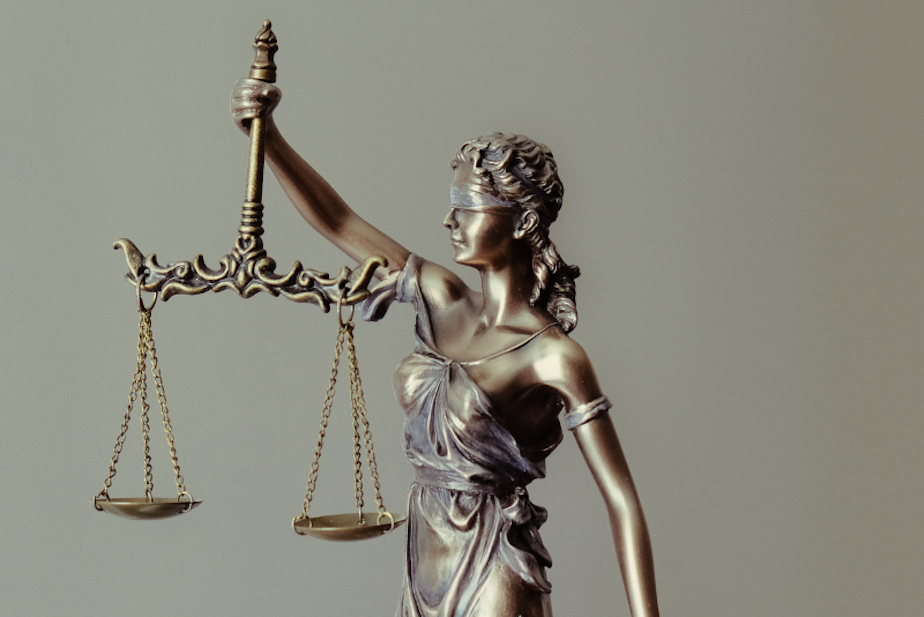What the potential end of the Indian Child Welfare Act could mean for tribal rights

W
hen the government believes a child is in a bad situation, sometimes that child ends up in foster care — and they could eventually be adopted.
For Native American kids, federal law requires states to notify tribes about the process and to prioritize placing the children with relatives, other members of their tribe, or other Native families.
Congress passed the Indian Child Welfare Act in 1978 to help remedy a long history of atrocities committed against Native American families.
Now the states of Texas, Louisiana, Indiana, and seven individuals want the law overturned, arguing it is unconstitutional.
Much of the challenge to the law hinges on a major question: whether tribal membership is a political designation or a racial identity.
Sponsored
When oral arguments for the case, known as Haaland v. Brackeen, began last week, Washington State Supreme Court Justice Raquel Montoya-Lewis was paying close attention.
Montoya-Lewis is the first enrolled member of any tribe to sit on a state supreme court in the United States.
And during Soundside's conversation about the case, Montoya-Lewis had a photo of the Carlisle Indian School as her Zoom background.
Carlisle was part of the dark period in American history when the federal government removed hundreds of thousands of Native American children from their homes, with the express intent to wipe out Indigenous languages and culture.
Members of Montoya-Lewis' own family were taken from their parents and placed in tribal boarding schools. She said learning that history is vital to understanding the reason Congress decided to pass a special law protecting Native American kids in custody cases.
Sponsored
By the 1970s, "some children had been removed from their families at rates of 75%," Montoya-Lewis said. "Some were lower. And when I say lower, I mean a quarter of Indian children had been removed from their families, and placed in white families."
The plaintiffs in the case currently before the Supreme Court have made three arguments against the law.
The first is whether Congress had the power to pass the Indian Child Welfare Act in the first place. The plaintiffs argue the law doesn't fall under "regulating commerce" in the constitution.
The second argument is that the Indian Child Welfare Act constitutes racial discrimination. Basically, if the court sees tribal membership as a racial classification instead of a political one, this law would violate the 14th Amendment.
Montoya-Lewis walked us through the implications of that argument.
Sponsored
"I think this is well-treaded law in U.S. federal Indian law, and that law largely comes from the U.S. Supreme Court starting in the 1700s," she said.
At the time, the Supreme Court recognized the tribes as sovereign powers, like a separate country would be. A tribal member is a citizen of the United States, but they're also a citizen of their nation or tribe.
"The government to government relationship has been the underpinning of those relationships for several hundred years at this point," Montoya-Lewis added.
And that, she said, is the entire basis for the Indian Child Welfare Act.
"Tribes are entitled to participate in hearings that are related to their children, as much as the parents are allowed to participate. This is not about racial discrimination. It's about citizenship."
Sponsored
Montoya-Lewis said taking away that right would undermine 300 years of Supreme Court precedents.
Washington state also has its own Indian Child Welfare Act, passed in 2011.
Justice Montoya-Lewis didn't comment on the act itself, but noted that having a backup policy in place, in case federal law is overturned, is part of the reason states pass their own welfare acts.
This decision won't just bring Native American child welfare policy into question — it will also have a reverberating effect on tribal rights in general.
"What happens with all of these...thousands of negotiated agreements, contracts, state and tribal required negotiation around things like waterways, and more recently, how to respond to something like a pandemic?" Montoya-Lewis questioned.
Sponsored
Loni Greninger has also been following this case. She's Vice Chairwoman of the Jamestown S’Klallam Tribe, and also Tribal Co-Chair of the Washington State Department of Children, Youth, and Families' Tribal Policy Advisory Committee.
She co-wrote a statement last week urging the Supreme Court to reject the challenge to the Indian Child Welfare Act. But she told Soundside she recognizes the extremely sensitive nature of cases like this.
Greninger added that she thinks it's possible for non-Native American families, including the plaintiffs in Haaland v. Brackeen, to believe they have the best interest of Native American kids at heart.
"The system itself, in which the Indian Child Welfare Act is built, is not perfect," Greninger said.
But there are things a non-Native American family wouldn't be able to impart to Native American children, she said.
"There is going to be something that they cannot innately offer to that child if you are not of that tribal descent. Some of that culture is innate."
There's a connection, Greninger said, that has to be sustained.
"Understand that this child is connected — politically and deeply spiritually — to a land and a people. And that has to be maintained."






